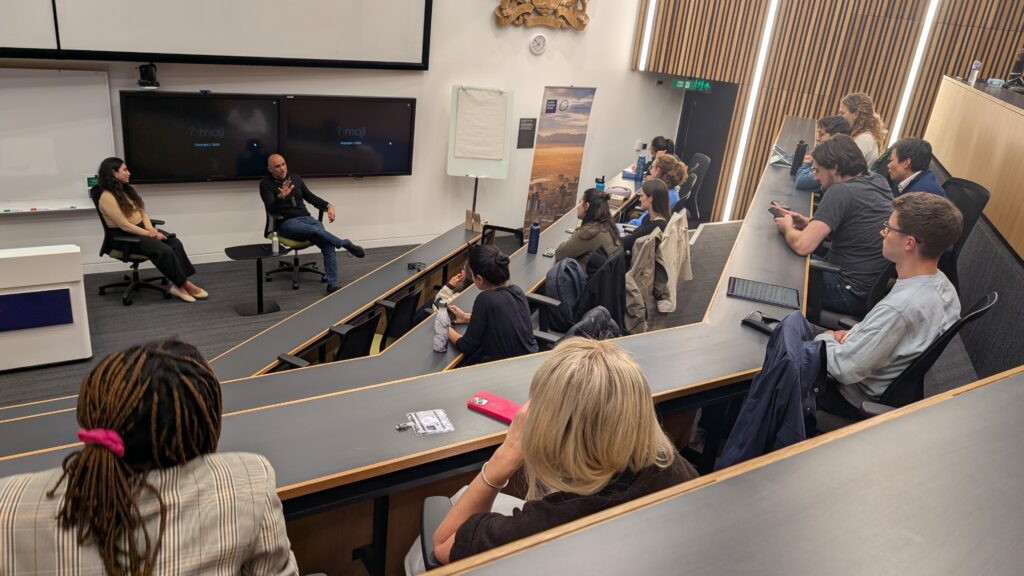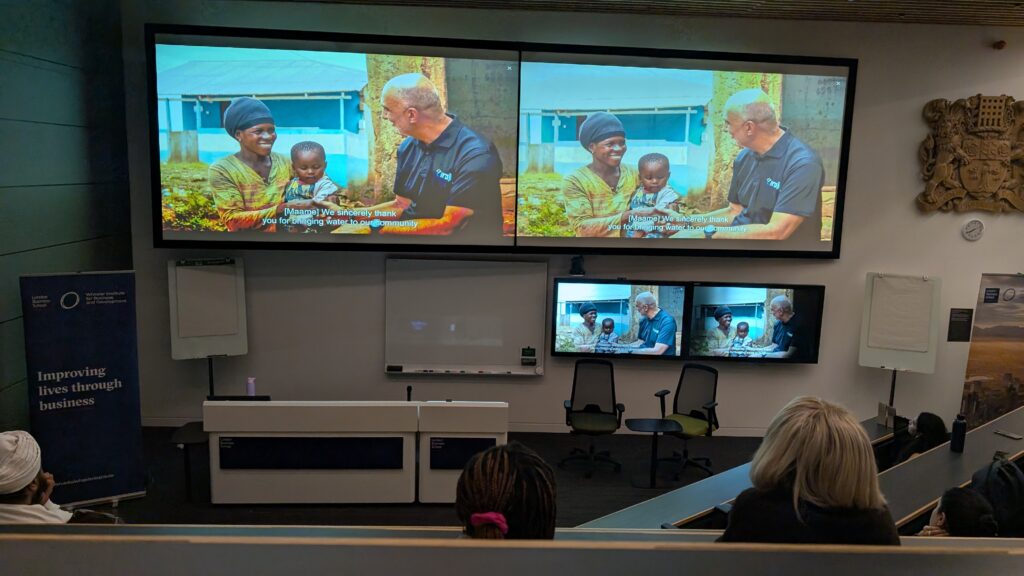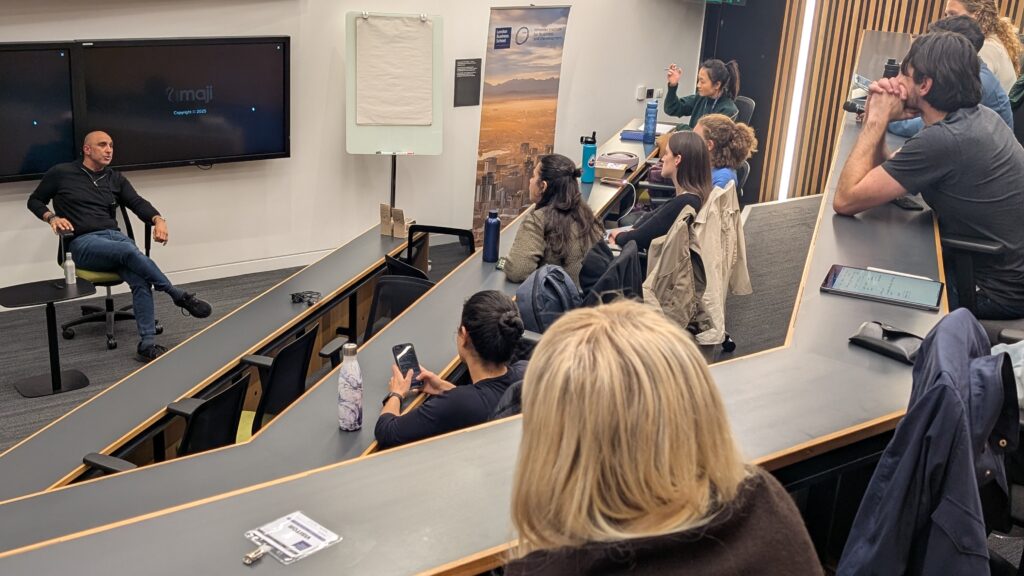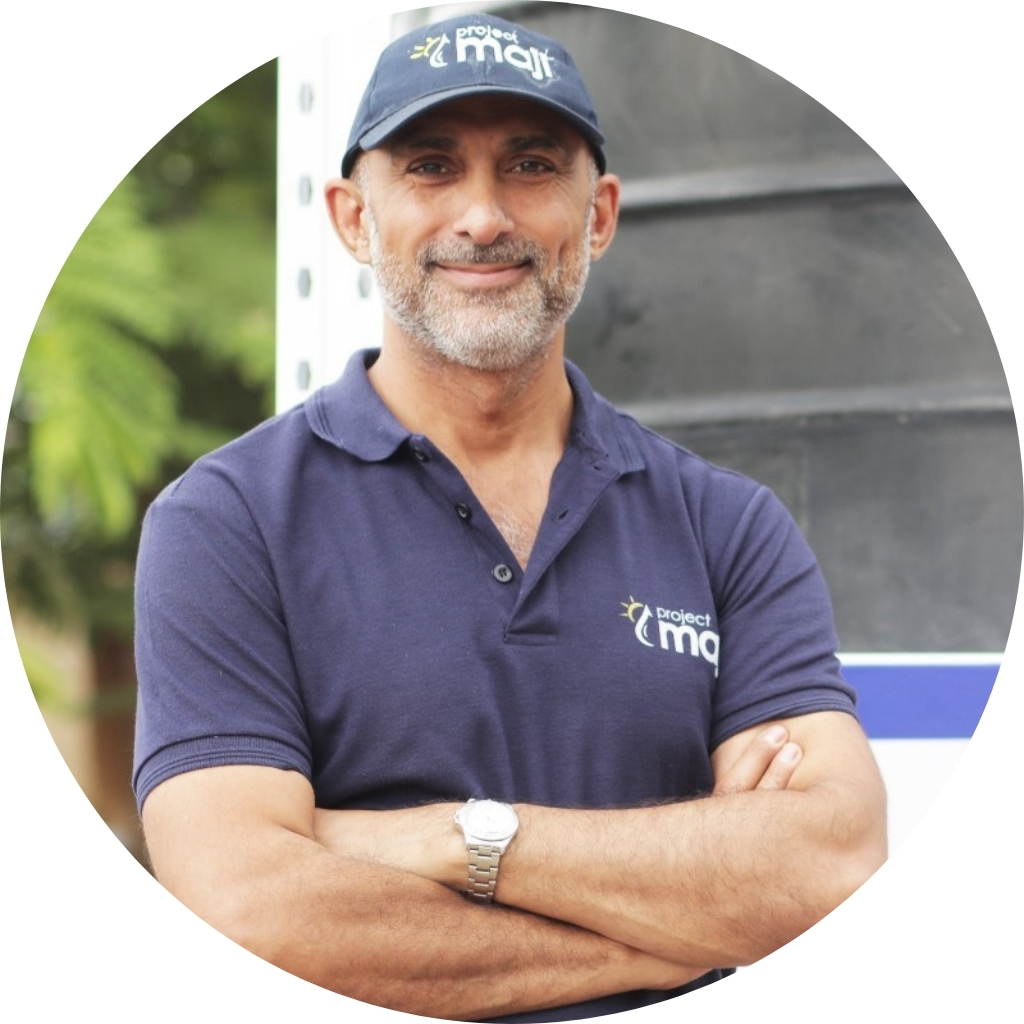At a recent event organised and facilitated by LBS Social Impact Club, CEO and founder of Project Maji and LBS ExecEd alumni, Sunil Lalvani shared his journey of shaping a social enterprise that delivers sustainable access to clean water across rural Africa. The discussion traced Project Maji’s evolution—from a single site in Ghana to a network of solar-powered kiosks now serving hundreds of thousands—illustrating how entrepreneurial problem-solving, iterative innovation, and partnerships can drive development impact where conventional aid has struggled. This conversation was moderated by Sukanya Nambiar, MBA2026, and Senior Exco at London Business School’s Social Impact Club.



Water crisis across rural Africa
Across sub-Saharan Africa, water scarcity remains as one of the most entrenched barriers to development. In remote villages, women and children often walk several kilometres daily to collect water—sometimes five to six times a day—from unsafe sources. Broken hand pumps are common sights, reflecting a pattern of well-intentioned but short-lived interventions.
The consequences ripple through every dimension of life of the villagers who spent hours every day on fetching water: children leave school early and miss out classes, women’s economic participation remains constrained by time-consuming household water duties, waterborne illnesses and hygiene problems undermine productivity and living standards. Despite decades of investment, the challenge persists: fragile infrastructure, limited maintenance, and insufficient funding and local ownership frequently lead to systems falling into disrepair within years of installation.
Witnessing the gap
It was against this backdrop that Sunil Lalvani—then a business executive—witnessed the harsh realities of Ghana’s rural water crisis firsthand. During his visits to rural Ghana, Lalvani observed the disconnection between communities’ daily struggles and broken hand pumps left behind by earlier projects as remains of generosity that had failed. Children queued at puddles and streams; they spent more time fetching water for their family and the school than they did learning.
Moved by the enormity of unmet need, Lalvani founded Project Maji in 2015 with a clear mission: to close the gap left by failed infrastructure and create lasting, self-sustaining water systems. The name “Maji,” meaning water in Swahili, symbolised both purpose and place.
What began as a corporate social responsibility initiative soon became a full-time social enterprise, harnessing business acumen to tackle one of the world’s most enduring development failures. Lalvani’s guiding motivation was simple yet profound—to build water systems that would still function for today, tomorrow, next year, 10 years from now – long after donors and founders had moved on.
A decade later, that vision has materialised into more than 450 operational sites across Ghana, Kenya, and Uganda, providing safe water to roughly 450,000 people and setting an ambitious target of reaching one million by 2030.
Innovation for resilience
Project Maji’s solution is both technically robust and socially grounded. The organisation’s solar-powered kiosks are prefabricated, modular units—designed for rapid assembly, low maintenance, and long-term reliability. Each kiosk contains a 5,000-litre tank feeding multiple taps through gravity, ensuring quick and easy access without queues. Remote monitoring systems are also installed at each kiosk, tracking performance metrics and signal faults in real time to allow maintenance teams to respond before breakdowns occur—a significant leap from the conventional model to sustain impact and changes.
Affordability and community ownership are also central to the solution design. With MajiPay, a prepaid mobile payment solution, villagers purchase water credits stored on blue tokens, which are simply tapped on the system to access the water — transforming what was once a donor-driven service into a self-financing local water utility. Project Maji remains involved and responsible for the technical performance of the kiosks, but communities managing their own water points. A trained caretaker from the community oversees daily operations, and a modest nominal usage fee is charged to sustain maintenance and expansion. Locals are also engaged in the kiosks installation: Along with the project Maji teams, village masons and plumbers help to assemble each kiosk, creating local jobs and a sense of shared stewardship.
The kiosks themselves reflect a process of continuous innovation. Early prototypes were over-engineered and costly—featuring reverse-osmosis filters and heavy batteries. Field experience prompted successive redesigns to reduce costs, simplify components, and strengthen durability. Each unit now costs around $25,000 to deploy (down from the original $50,000), balancing affordability with a design that minimises the need for expensive field repairs.
Rippling effect
The results are tangible—and transformative. Reliable water access has set off a chain reaction of changes across communities served by Project Maji. What begins with a simple turn of tap has reshaped health outcomes, education, gender equality, and livelihoods.
Health and hygiene have seen significant improvements. While families once relied on stagnant muddy puddles for water, safe water access dramatically reduced the cases of waterborne diseases such as diarrhoea, bilharzia, and urinary infections. Households also develop better sanitation and hygiene habits – handwashing, bathing, and preparing food with clean water, further sustaining the health benefits.
The impact on education is equally profound. As Project Maji installs additional free access points to schools in communities, children who once had to spend hours fetching water before and after school, or sometimes missed school as a result, can now attend school consistently. Teachers report higher attendance and improved concentration, as student now can arrive on time, hydrated and ready to learn.
For women, who traditionally manage water collection, the change is liberating. Hours once spent fetching water can now be spent on faming, market trading, or even small enterprises. Women can contribute more actively to household income and community decision-making, with relief from the daily uncertainty of water access and renewed empowerment and confidence.
What might appear as a modest intervention – a kiosk and a few taps, has in practice, transformed entire community dynamics. In each village, clean water is not just a utility, it has become the foundation upon which opportunity, dignity, and independence are built. As one elder described it, “Water is life, but this water has given us more than life – it has given us time to build a better life.”
A mission beyond growth
Reflecting on his journey, Lalvani describes a personal evolution from a business executive to a champion of purpose-driven enterprise. The goal, he says, is not endless growth but sustaining a consistent and ongoing supply of water to every rural community.
Ten years after its first installation, Project Maji continues to uphold its founding promise: to eliminate rural water poverty—drop by drop, village by village. As it approaches its one-million-people milestone, the organisation offers a powerful reminder that innovation, empathy, and persistence can bridge the gap between technology and human need. Project Maji’s story exemplifies how business principles—efficiency, accountability, and design iteration—can be reimagined to tackle humanity’s most pressing challenges. In bringing clean water to rural villages, it demonstrates that sustainable development begins not always with grand scale, but with one drop at a time.
About the speakers

Sunil Lalvani is the CEO and Founder of Project Maji (Swahili for water). Sunil’s professional path began when he joined his family’s electronics business, Binatone, in 1994. He rose through the ranks to become the Group Managing Director in 2008, successfully shifting the company’s core operations to the UAE during his tenure until 2015. However, it was a pivotal trip to Ghana in 2014 that changed the course of his life. Witnessing the harsh realities of water scarcity firsthand inspired him to establish Project Maji, a social enterprise committed to providing sustainable access to safe water in rural sub-Saharan Africa.

Sukanya Nambiar is an MBA2026 candidate at London Business School and Senior Exco- Speakers and Panels at the Social Impact Club. She is also actively involved in the Energy and Environment Club, and India Club. After completing her Bachelor’s degree in Economics from St Stephen’s College, University of Delhi in 2020, Sukanya embarked on a career in social impact consulting. She began by working with a state government to design and implement programs focused on skills development and employment opportunities. Later, as a Consultant at Deloitte India, she helped businesses develop and execute their Corporate Social Responsibility (CSR) strategies.
About the writer

Luise Lin is an MBA 2026 candidate at London Business School and an Outreach and Communication Intern at the Wheeler Institute for Business and Development. Prior to joining London Business School, she worked at Boston Consulting Group as Consultant in Australia, where she advised clients across private and public sectors as well as social enterprises. Luise is passionate about leveraging innovative business models and financial solutions to drive scalable economic development impact in developing regions. She is particularly interested in the intersections of management, policies, and social impact, exploring how private sector solutions can contribute to sustainable development.
The Social Impact Club
The Social Impact Club is one of the largest student clubs at LBS with the goal to support the development of students in becoming socially responsible business leaders by providing educational, experiential, professional, and networking opportunities to the LBS community.
